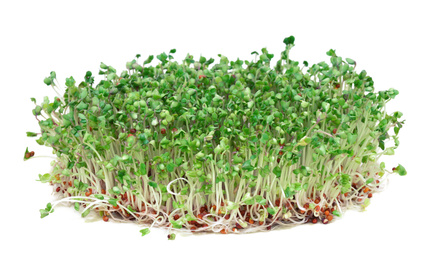
- Sprouts are an incredibly nutritious food. They are seeds that are grown in water until they sprout and then eaten. They make a convenient addition to salads and can pack a healthy punch. Vitamin content of some seeds can increase by up to 20 times their original value within a few days of sprouting. They are a live food nutritional powerhouse.
- How to grow sprouts:
- First of all, make sure to buy seeds that are made for sprouting. They are cleaned very thoroughly and are free of toxins. They will be labeled at your local nursery as sprouting seeds.
- Some of the best seeds and beans for sprouting are chickpeas, lentils, azuki beans, beet seeds, mustard, green peas, and fenugreek, to name a few.
-
- Make sure to use a reputable source that sells organic seeds. We like Mountain Rose Herbs and True Leaf Market.
- 1. Add 1-2 tbsps of rinsed seeds or legumes into a BPA-free glass jar. The jar should have enough room for the seeds to expand during sprouting. They will expand about eight times their original size.
- Cover them with about 2 inches of purified or filtered water. Let the seeds sit in the jar overnight.
- The duration of soaking will depend upon the size of the seed. Small seeds are soaked for five to six hours, medium size for eight hours and beans and grains for 10 to 12 hours.
- 2. Drain the water from the jar, using a cheesecloth or sieve.
- 3. Rinse the seeds with water.
- 4. Repeat steps 1-3 twice a day, every day. Sprouts are the best when they are small and start to turn green.
- The seeds will germinate and become sprouts in two or three days.
- Sprouts are at their optimum level when tiny green leaves appear at the tips.
5. Store sprouts in a BPA-free container, covered with a paper towel inside to absorb excess moisture. Keep refrigerated to retain their freshness.
- 6. Sprouts will keep for a week.
- Let’s look at the health benefits of sprouts.
- Good source of enzymes:
- They are packed with enzymes, which help maintain bodily functions including digestion. They help the body absorb essential nutrients from the foods you eat and helps the body use them efficiently.
- High in protein:
- Sprouts are an excellent source of protein, which are found in almost every tissue and body part. According to the Harvard School of Public Health, “At least 10,000 different proteins make you what you are and keep you that way.”
- Rich in nutrients:
- Sprouts are extremely potent because they are still young, and are a rich source of essential nutrients such as omega-3 fatty acids, dietary fiber, vitamin, A, C, B vitamins, and vitamin K. They are also a good source of minerals like calcium, iron, magnesium, potassium, and manganese.
- Weight loss:
- Sprouts are very low in calories, and high in dietary fiber. Eating foods that are low in calories and high in fiber is an important part of an effective weight loss diet.
- Sprouts are also a food source of minerals and are easily assimilated and digested.
- Are sprouts safe?
- Though sprouts are very nutritious and can provide health benefits, there are some things to keep in mind. In 1999, the FDA released a statement outlining the risks of eating sprouts. “Raw and lightly cooked sprouts, especially alfalfa, clover and mung bean sprouts, have been associated with foodborne illness in a number of outbreaks,” the FDA statement explains.
- Dr. Andrew Weil, a leading physician also had some advice to about eating sprouts. “I have long advised against eating bean sprouts raw because of toxins they contain that are only broken down by thorough cooking,” Dr. Weil states. Sprouts may contain E. Coli or Salmonella, which are bacteria that can cause symptoms such as diarrhea, abdominal cramping, nausea, and fever. “Insist that sandwiches and salads in restaurants and delis be served without alfalfa sprouts, and if and when you do eat other bean sprouts, make sure that they’re thoroughly cooked,” Weil adds.
- Rediscovering the treasured chia seeds.
- For the health benefits of hemp seeds.
-
- Note: The content on our website is for educational purposes only. Please consult your health practitioner or a qualified expert.
- REFERENCES:
- 1. “Safe from Sprouts?” DrWeil.com. WEIL, n.d. Web. 15 Mar. 2014.
- 2. “Growing Sprouts in Retail Food Establishment – CFP Issues 02-III-01 and 04-III-012.” FDA.gov. U.S Food and Drug Administration, n.d. Web. 15 Mar. 2014.
- 3. “Protein.” The Nutrition Source. Harvard School of Public Health, n.d. Web. 14 Mar. 2014.
- 4. “Sprouting Seeds.” Mountain Rose Herbs. N.p., n.d. Web. 15 Mar. 2014.
- 5. “How to Grow Sprouts in a Jar.” About.com Organic Gardening. N.p., n.d. Web. 15 Mar. 2014.


















